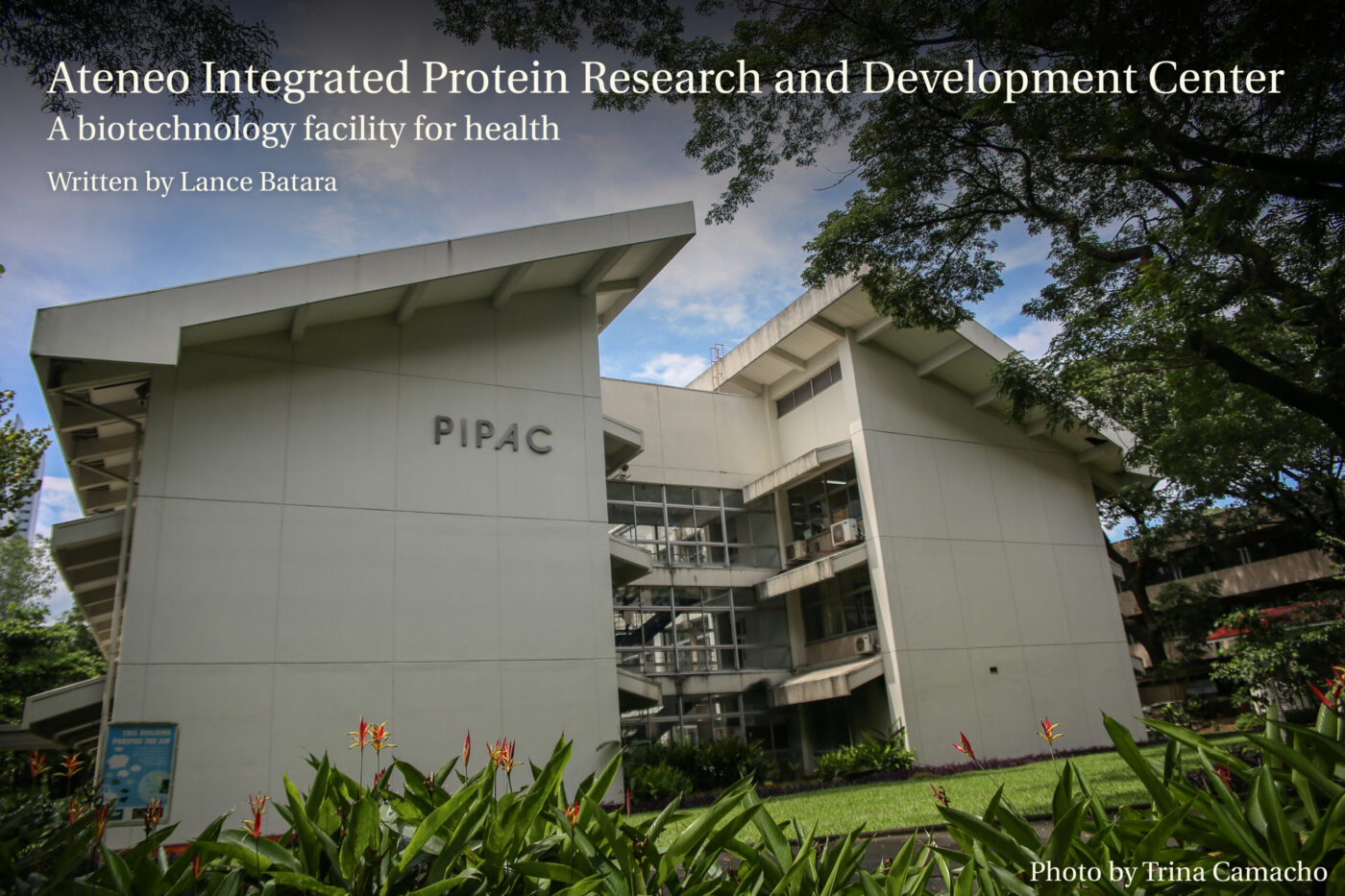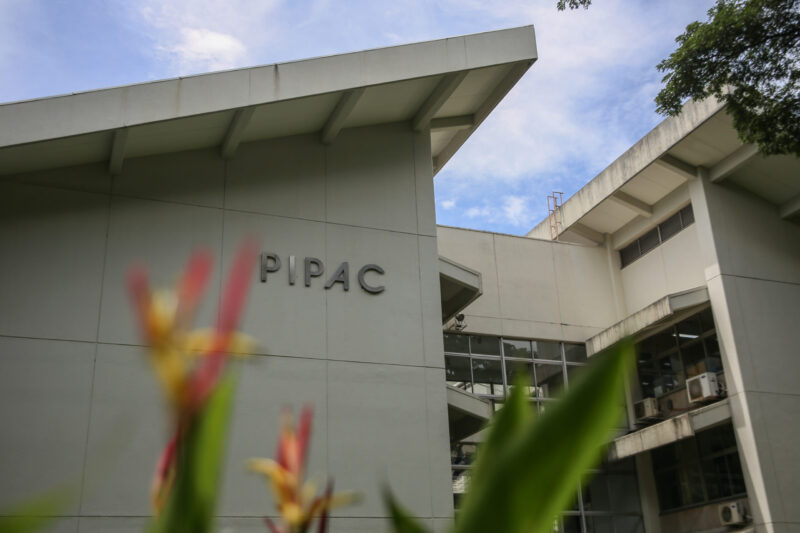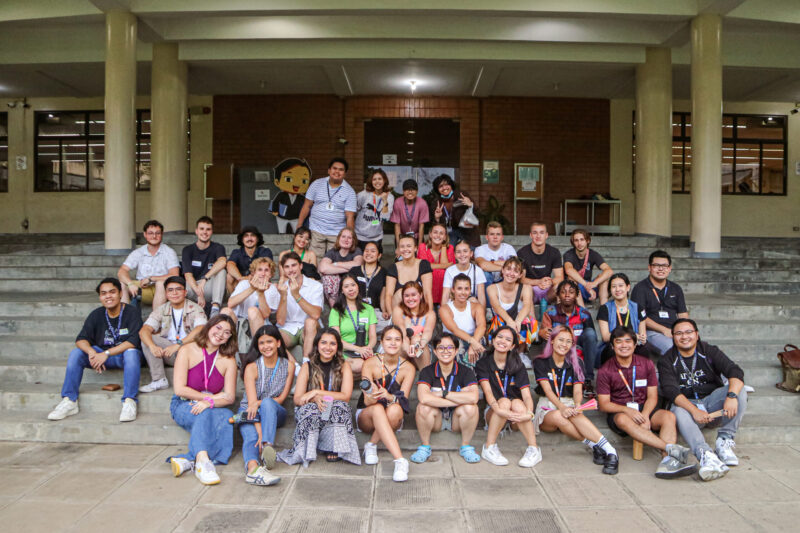TO EQUIP the country in combating future epidemics, Ateneo’s Integrated Protein Research and Development Center (IPRDC) will soon rise on the hill as premier biotechnology laboratory focusing on protein production.
The IPRDC is one of the recipients of the Department of Science and Technology (DOST) Niche Centers in the Regions for R&D (NICER) Program, which provides grants to higher education institutions’ research efforts for development.
The IPRDC has four working projects focusing on different assignments. Project One, headed by the IPRDC Program Leader and Biology Department Chair Crisanto Lopez works on protein production through molecular cloning at a lab scale. Subsequently, Arni Gambe-Galbuena, PhD and the Project Two team research production cost optimization to produce more proteins.
Meanwhile, Projects Three and Four focus on the engineering and branding side of IPRDC. These projects are handled by the Ateneo Research Institute of Science and Engineering’s research fellows, Danielle Lapinig, and Ricky Guerrero, PhD, respectively.
Through the four projects, the program aims for a holistic approach to produce low-cost, high-quality, and accessible reagents to be used in making diagnostic kits by various research facilities in the National Capital Region (NCR).
Lopez emphasized that the inefficient process of importing necessary proteins for SARS-CoV-2-related research drove former Biology Department member Keith Moore, PhD to pitch the idea of the IPRDC for NICER application.
Maximizing capacity
According to Lopez, the IPRDC officially started operations last February 2022 when the DOST transferred the budget for the center’s first year of implementation. However, their team began processing the proposal in 2020, two years before the commencement of the center.
When asked about their progress since the budget allocation, he said that the team initiated hiring research staff while simultaneously requesting quotations for laboratory supplies and equipment. “Matagal ‘yung process kasi (It takes time to process). Most of them (equipment and supplies) come from out of the country, so it takes three to four months before they come here,” Lopez explained.
While waiting for the shipment of the equipment, the IPRDC team gathered literature to strengthen their knowledge about protein production. Additionally, with the guidance of their Project Managers, Engr. Patricia Mae Decena and Izobelle Echaluse from the DOST, IPRDC team conducted meetings to discuss the center’s administrative and managerial aspects.
“In the meantime, the other projects are also busy. Most of the time, training them (the research staff). So they attend conferences and training to learn more about how they will contribute based on their job description,” Lopez explained.
Aside from the seminars, the DOST Philippine Council for Health Research and Development also monitors and assesses the monthly progress of the IPRDC to ensure the alignment of each project.
A helping hand
Besides being a premier biotech laboratory, the IPRDC catalyzes capacity building by encouraging junior scientists and high school students to take an interest in the biotechnology field. In doing so, they fulfill the center’s tagline, “IPRDC, a biotechnology facility for health, empowering biotechnology.”
Aside from this, Lopez reported that around 20 Atenean undergraduate students are involved in developing products and enzymes. He also revealed that the team is willing to provide services and enzymes to other Atenean researchers at a lower cost to encourage aspiring scientists in the biotech field.
“So we stick with the ‘men and women for others’ [motto]. We actually do our part as scientists and, of course, the students to use the knowledge to help other people… so in the end, we hope to, of course, boost the biotechnology sector in the Philippines,” Lopez added.
In discussing the importance of biotechnology, Lopez pointed out that it helps scientists prevent and treat diseases resulting in a better and healthier society. He expounded that it is a broad discipline—one that can deliver products that improve public health, the environment, and the agricultural sector.
“Knowing that there are biotechnology assays, protocols, and other applications of biotechnology while utilizing our [the scientists] own expertise, then we can provide service and help the community,” he emphasized.
Building the future
Currently, the IPRDC does not have a physical lab due to its lack of equipment. However, Lopez said that the team expects to transfer to their rented lab space at the Philippine Institute of Pure and Applied Chemistry before they launch the facility in early 2023.
“This is really one of the biggest funded programs of DOST, and malaki expectation for us sa Ateneo. Galing ‘yan sa tax ng mga taong bayan; kailangan gamitin nang maayos by doing our job (It’s from the people’s taxes, so we need to use it properly by doing our job). And, of course, we [want to] deliver what we promised,” Lopez said.
In the long run, Lopez hopes the facility will expand beyond NCR and broaden its scope by including the food and agricultural sector in its endeavors.







